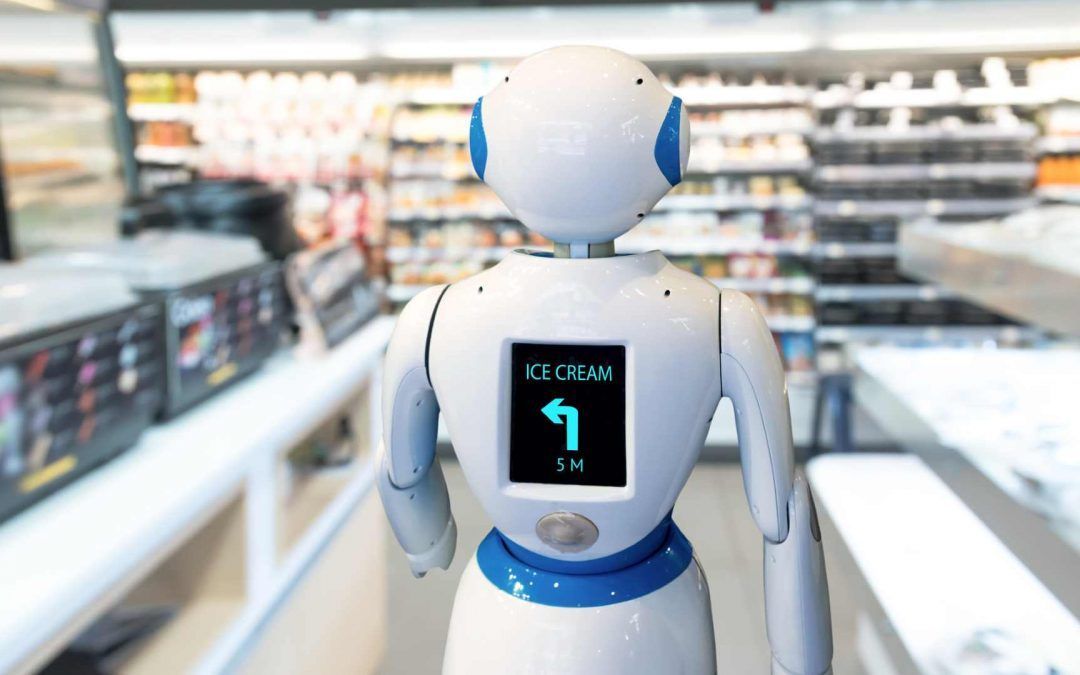The inclusion of Artificial intelligence, also known as AI, in retail has significantly accelerated in recent years. AI in retail alters how businesses are run, increasing productivity and boosting customer satisfaction. In this essay, we will examine five significant changes that AI continues to bring about in the retail sector. So let’s get started!
Personalised Shopping Experience
A personalised suggestion is one of the most effective ways artificial intelligence or AI in retail alters the buying experience. AI-powered recommendation engines are made to examine consumer behaviour and data to make tailored product recommendations.
Such algorithms can offer customised product recommendations to each consumer by considering various variables, such as previous purchases, browsing history, demographics, and weather patterns. It helps retailers increase revenue and patron loyalty and enhances the consumer experience. Retailers can get a competitive edge by adopting AI by offering clients a personalised shopping experience that caters to their specific requirements and interests.
Supply Chain Optimization
Supply chain management has also changed as a result of AI in retail.
Intelligent Customer Service
AI in retail has altered how businesses give customer support as well. Retailers are rapidly embracing intelligent customer care powered by chatbots and virtual assistants, and it has several advantages over more conventional customer support techniques.
Enhanced Store Operations
Through AI-based predictive analytics, retail uses of AI are revolutionising shop operations. Retailers can optimise their store layout, product placement, pricing, and promotions by analysing sales, consumer behaviour, inventory, and other data.
By employing predictive analytics to detect and stop fraud and other security issues, AI in retail may also help merchants manage their employees more skillfully. It allows stores to decide on personnel levels, shift scheduling, and training based on data. Retailers may increase operational effectiveness, lower expenses, and improve their customer’s shopping experience by utilising AI.
Improved Fraud Detection
The application of machine learning algorithms in retail has enhanced fraud detection as a result of artificial intelligence. These algorithms can identify and stop fraudulent actions, such as identity theft, money laundering, and credit card forgery, by looking for patterns in customer behaviour and transaction data.
Retailers can discover potential security threats in real-time thanks to AI, lowering their risk of suffering financial losses and reputational harm. Retailers may increase customer loyalty and trust by utilising AI to protect the security of their customer’s financial and personal information.
Augmented Reality
Using augmented reality (AR) technology to improve the in-store experience for customers has been made possible by AI in retail. By utilising AI-driven AR technologies, retailers can provide customers with a more exciting and interactive shopping experience. Customers can virtually try on clothing, see furniture in their houses, or have a fresh product experience.
Additionally, AI in retail can enhance the whole shopping experience by offering customers personalised recommendations based on their tastes and previous behaviour. Retailers can give their consumers a distinctive and memorable in-store experience by utilising AI, boosting sales, and improving customer loyalty.
Conclusion
Ultimately, AI in retail is revolutionising the sector in various ways, including improved fraud detection and personalised shopping experiences. Retailers may use AI technology as it develops to improve their operations, give customers a better shopping experience, and boost sales. Retailers can stay competitive in a constantly changing sector and satisfy contemporary consumers’ needs by integrating AI.
